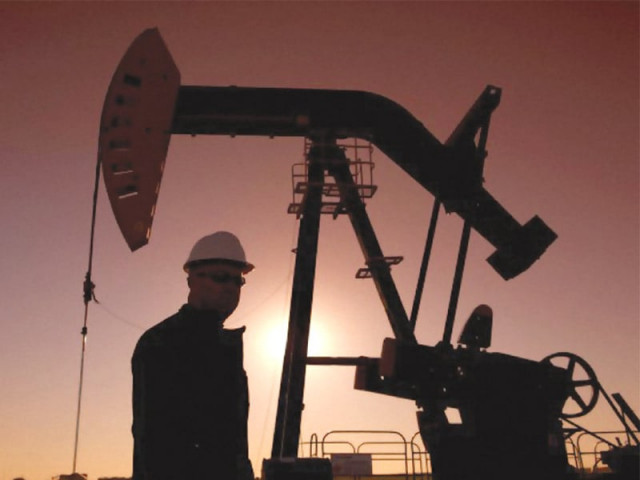On track to address energy woes
Oil, gas, power production improves slowly but steadily.

In the current fiscal year 2013-14, the country’s oil production has shot to a record high at 94,000 barrels per day from 74,000 bpd, data shows. PHOTO: FILE
With the election slogan of fixing the economic malaise, the PML-N government, approaching the end of its first year in power, looks to be on track to make progress in the energy sector, with oil and gas production as well as power generation increasing at a slow but steady pace.
Still, hours-long power outages and long queues of motorists at fuel stations cast a shadow over the government’s performance as leakages and theft eat up the already scarce energy resources.
In the current fiscal year 2013-14, the country’s oil production has shot to a record high at 94,000 barrels per day from 74,000 bpd, data shows.
Gas production has also got a boost during the year on the back of 28 new discoveries by exploration companies, which were spurred by incentives and attractive prices.
The country has pushed up production by 300 million cubic feet of gas per day (mmcfd) from existing wells and brought 140 mmcfd from new finds, which will rise to 160 mmcfd by the end of the year on June 30.
“The government hopes to dig 60 wells by the end of June to search for new oil and gas reserves,” an official said.
Production of liquefied petroleum gas (LPG), used widely in remote areas for heating and cooking purposes, has increased 400 tons to 1,600 tons per day, bringing its prices down. For the first time, the country has also extracted 20 mmcfd of tight gas to cushion the strained gas reserves.
Gas import
Apart from domestic energy resources, the government is also going for gas import from different sources. Though progress on the Iran-Pakistan gas pipeline has stalled in the face of US pressure, Prime Minister Nawaz Sharif went to Tehran where the two sides agreed to find a way to press on with the project.
For another venture called the Turkmenistan, Afghanistan, Pakistan and India (TAPI) pipeline, the Asian Development Bank (ADB) has been hired as transaction adviser to help generate funds but progress had been slow.
However, the government has stepped up efforts for the import of liquefied natural gas (LNG). A contract for constructing the first LNG terminal has been awarded, which will be completed next year.
Power production
During the ongoing year, the government accelerated the pace of work and completed Guddu and Uch-2 power plants. The Nandipur power project, which was put on hold by the previous government, is also near completion and will be inaugurated on May 31.
However, the administration has failed to stop circular debt from emerging again as power companies could not curb leakages and theft. Recovery of bills from consumers is also far from satisfactory.
CNG demand
However, despite all this, motorists are frustrated over rationing of compressed natural gas (CNG), which has become a preferred auto fuel over petrol because of its lower cost.
Drivers have to wait for hours in long queues a day before and after the shutdown of fuel stations. CNG use has surged in the past decade. In 2002, the CNG sector consumed less than 1% of gas. Now its share hovers around 9%.
The importance of gas cannot be overstated. It meets 50% of Pakistan’s energy needs and a consensus has emerged that promoting its use in the auto sector was not the wisest decision.
A severe gas shortage has crippled the manufacturing sector and added to the power crisis. Engro’s $1 billion fertiliser plant, which has been forced to shut down multiple times, is a testimony to that. Gas is a raw material for making fertiliser.
Factories across Punjab remain out of business for days in winter as government is forced to divert limited gas supplies to households.
The PML-N inherited these problems when it swept to power last year on the back of promise to fix the economy. The party’s business-friendly past was hailed by investors at the time. It surely can’t be entirely blamed for the present troubles.
Published in The Express Tribune, May 26th, 2014.
Like Business on Facebook, follow @TribuneBiz on Twitter to stay informed and join in the conversation.



















COMMENTS
Comments are moderated and generally will be posted if they are on-topic and not abusive.
For more information, please see our Comments FAQ